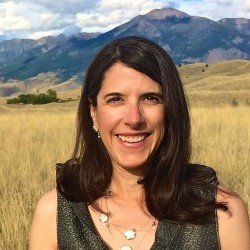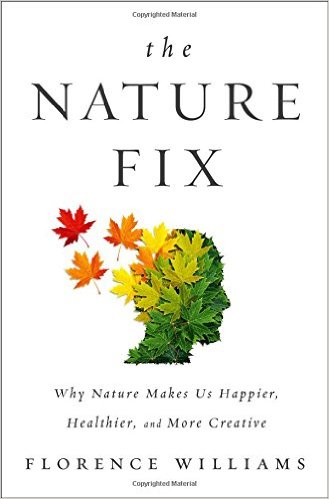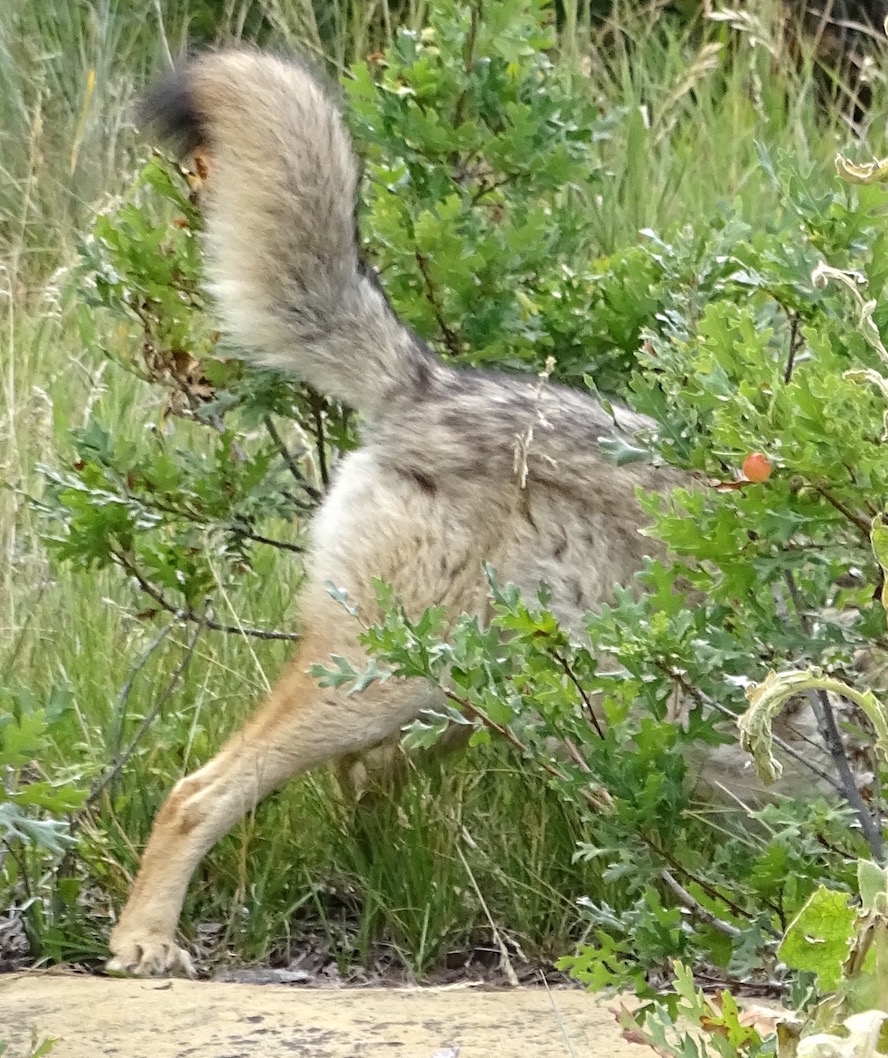We spoke with Florence Williams, author of The Nature Fix: Why Nature Makes Us Happier, Healthier, and More Creative. Read related post here.
Williams was raised in New York City and Washington D.C. As a young girl, Williams took English riding lessons at the now closed Claremont Stables and rode in Central Park. In Virginia and on vacations out West, she rode Western. Her daughter is now an enthusiastic rider, too.
 Although, Williams was raised in big East Coast cities, she has spent significant time outdoors, especially in Colorado. She told me she loved the Mancos area and has spent much time kayaking the Dolores River.
Although, Williams was raised in big East Coast cities, she has spent significant time outdoors, especially in Colorado. She told me she loved the Mancos area and has spent much time kayaking the Dolores River.
Years ago, Williams was an intern at High Country News and she now sits on its board.
ColoradoOutsider: In The Nature Fix, you write about the ‘forecasting error’ of subjects who underestimate how good being outside would make them feel. Were you concerned that people would similarly love this book but still ignore nature?
Florence Williams: Oh, yeah, definitely. I mean, there are a lot of books out there telling people to eat their vegetables and it doesn’t really work. It’s always a risk. Changing behaviors is hard.
As a journalist, though, I have this optimism that information can make a difference. So I have to kind of go with that.
COO: Elizabeth Kolbert (Pulitzer Prize winning author and one who praised Williams’ book) wrote this month about the evolutionary theory behind ignoring what makes sense. That doing the wrong thing is often what we do.
FW: We tend to be influenced by peers. But we’ve also seen some incredibly wonderful and helpful policy changes through the years as people do change their behaviors. The food movement, for instance.
 COO: Are you hoping that this book will effect policy and urban development, for instance, more so than, say, getting individual readers outside?
COO: Are you hoping that this book will effect policy and urban development, for instance, more so than, say, getting individual readers outside?
FW: I would love to see it influence both. I think effecting policy is very challenging, especially in this climate. But one thing I would very gratified to influence is how our institutions take on this issues. For example, I would love to see schools embrace recess. I’d love to influence the recess movement. Where I live in DC, ten percent of the students are meeting daily recess recommendations. It’s outrageous.
In office spaces, there could be more integration of biophilic design.
In neighborhoods, people could clean up existing parks and making them friendly enough. There could be more walking groups. We know that one of the reasons women don’t use parks more is because they don’t feel safe enough. I think we have a lot to learn from the United Kingdom where there has been this tremendous explosion of walking groups.
COO: Of the team of researchers you interviewed in Moab, Utah, a lot of them referenced their childhood experiences. You write about people’s ability to reset and relax in nature in part because those happy childhood experiences flood back into their brain.
What happens when there are fewer adults with outdoors-y childhood experiences?
What happens when there are fewer and fewer past experiences to reference?
FW: I think that’s a huge concern. I think this generation of children is more disconnected from nature than ever before. That can have tremendous consequences as far as their ability to enjoy and find comfort in nature as they grow up and also for conservation because there isn’t this love of nature that’s been established early on.
But one of the scientists I talked with was Adam Gazzaley. He grew up in Queens and doesn’t have those memories from childhood. He sort of discovered a love for nature in his early adulthood. So I think it’s possible.
COO: I do a lot of reporting in the equine world and there is a lot of research supporting the notion of how beneficial it is to spend time with horses. In your research, did you ever see a connection between equine therapy and nature therapy?
FW: I grew up loving horses. I rode in Central Park. It’s hard to believe. My daughter is also hugely connected to horses. She rides them almost every day in the summer.
I think the [animal] connection is absolutely a big part of the nature connection. Our natural inclination to want to affiliate with other species is a very powerful human urge. I didn’t spend a lot of time writing about it but I totally believe it. I was also totally moved by my experience with the veterans with PTSD and how much their service animals helped them. It’s absolutely important.
COO: At a neurological level, do you see similarities between equine therapy and nature therapy?
 FW: I think it’s a little different. There is the eye contact moment. It’s supposed to release oxytocin when you make eye contact with another species. So, there are some subtle differences there. But both are certainly capable of changing the brain and bringing us joy and awe and delight.
FW: I think it’s a little different. There is the eye contact moment. It’s supposed to release oxytocin when you make eye contact with another species. So, there are some subtle differences there. But both are certainly capable of changing the brain and bringing us joy and awe and delight.
COO: As a society, we’ve gotten away from rewarding intuition and instead reward for tech-oriented, logic-oriented achievements. Yet now, science is circling back to confirm that what we knew intuitively (like healthy bodies support healthy brains and vice versa). Do humans, Americans in particular, require scientific confirmation?
FW: I do think we live in a very evidence-based society. For better or for worse. The cool thing is that we’re now learning that some of our intuitive processes are good for productivity, good for creativity, good for preventative health.
It is kind of ironic. Like we did, for instance, move away from intuitive-based medicine but now that evidence is reinforcing it, it’s back.
Florence Nightingale, 160 years ago, understood the importance of fresh air and sunlight. She described very sick patients during their head to the light. I love that. For a hundred years, we forgot that. We’ve been putting patients in climate-controlled environments, cutting them off from nature. Now, there is new evidence that it improves healing.
The body holds a lot of wisdom and that’s a little bit of a cliché. But now that we’re able to measure what that wisdom is and what the physiological consequences are, I think there’s renewed respect for what we crave and where we feel best.
I think we’re living in a moment now, too, where we’re able to understand the degree of our disconnection because there is a  lot of anxiety around technology and how it has sort of stolen our lives. So I would hope it’s a real opportunity to reexamine those connections. I think we’re at a crossroads.
lot of anxiety around technology and how it has sort of stolen our lives. So I would hope it’s a real opportunity to reexamine those connections. I think we’re at a crossroads.
COO: But sitting on the couch becomes a habit. We know from science that those dopamine cycles are what’s hard to get away from.
FW: Cognitive behavioral therapy has been very effective for a lot of people. It’s just kind of baby steps. A program that’s simple and easy to follow. And, you know, going outside is simple. It’s inexpensive. It’s accessible. I define nature in a very generous way, even if it’s just listening to the birds on your street.
I think you’re right. There are challenges in terms of habits. But I also think that cognitive behavioral therapy has shown us that small adjustments can make a huge difference in our mood, even a huge difference in our need for medications.
Thanks, Florence!
Great interview! Connecting with nature offers several health benefits, including sleep improvements, better immune system function, and lower rates of stress-related disorders. I think the term for this is ecotherapy.